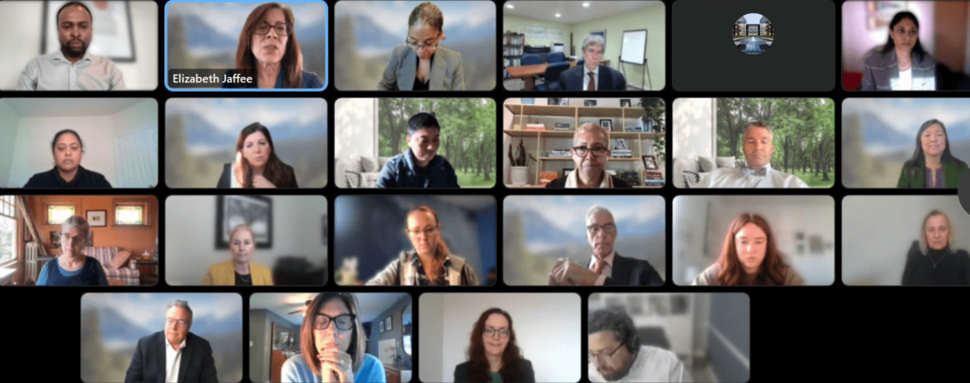Meeting 2 Recap: Technology Opportunities for Patient Navigation
Join us on X (Twitter) by following @PresCancerPanel, and connect with us on LinkedIn.
On November 2 and 3, 2023, the President’s Cancer Panel held the second of three public meetings on cancer patient navigation and technology. Patient navigation is an evidence-based, person-centered healthcare delivery model that aims to help every cancer patient access timely and quality care. Health technologies could transform patient navigation; however, these tools must be thoughtfully designed and implemented to make sure they are accurate and useful and to avoid making existing health disparities worse.
The first meeting in the series, held October 17, included presentations from patient navigation experts and discussions of the state of the field. Ideas and topics from that meeting led into the discussion at the November meeting, which focused more directly on technology.
Themes and priorities from this meeting included:
- Emerging technologies with potential to help cancer patient navigation
- Economic and infrastructure barriers to the widespread use of existing technologies
- Biases in artificial intelligence (AI) that harm racial and ethnic minority populations
- Challenges to creating culturally appropriate and accessible technology tools
- How mobile devices like smartphones and tablets can be incorporated into patients’ cancer care plans
Participants emphasized the variety of patients’ navigation needs, from understanding treatment plans to finding food and shelter. Financial toxicity is still among the most significant risks to cancer patients.
The discussion also highlighted the importance of building and maintaining trust between patients and providers, particularly when bringing in technological solutions. Many communities, especially those that are under-resourced and those that experience greater health disparities, already distrust institutions, including medical systems. Unless new tools are created with care, adding a layer of technology could alienate these communities further.
Current technological solutions like patient portals, automated scheduling, and telehealth platforms are far from one-size-fits-all. Many tools are offered only in English, or do not consider the wide range of patient experiences that can influence their access to care. To make sure that new tools are both accurate and equitable, developers must make the investment to include patients and navigators, especially those from under-resourced communities, in every stage of the process.
Presenters noted that cancer patients, navigators, and providers are already overburdened; it is vital that any new navigation technologies save, rather than require, time and energy. Users will not benefit from tools that are hard to understand or complicated to use.
One area of opportunity is matching patients with clinical trials, especially in remote and rural areas. AI and other technology solutions could streamline this process, connecting more patients with the care they need.
The final meeting of this series, on December 7 focused on policies to support patient navigation technology. The presentations and discussions in all three meetings will inform the Panel’s recommendations, which will be included in a report to the President of the United States.
A recording of the November meeting is available now on the President’s Cancer Panel website. The meeting summary will be available there this winter.
